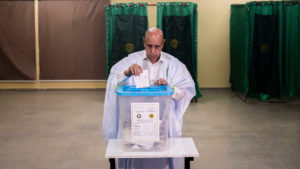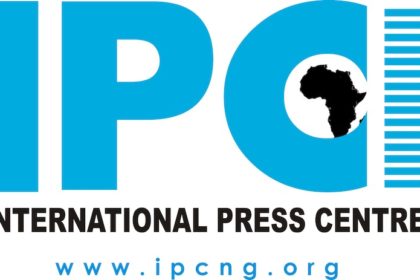
Nouakchott, Mauritania— As the sun sets over the sprawling deserts of Mauritania, the political landscape of this West African nation witnesses a significant shift. Incumbent President Mohamed Ould Cheikh El Ghazouani is poised to secure a resounding victory in the presidential elections, with early results indicating a substantial lead over his challengers.
The national electoral commission, Ceni, reported on Sunday afternoon that with 90 percent of the votes counted, President Ghazouani is predicted to win over 55 percent of the ballots cast. This substantial lead places him well ahead of his closest rival, human rights advocate Biram Dah Abeid, who trails with approximately 22 percent of the vote.
A Nation Votes Amidst Tensions and Hopes
On Saturday, Mauritanians flocked to polling stations across the country, participating in a democratic exercise that featured seven candidates competing for the highest office. This election holds particular significance as Mauritania stands on the brink of becoming a gas-producing nation, while also managing to insulate itself from the rampant jihadism plaguing its regional neighbors.
Despite the overall peaceful conduct of the election, tensions simmered beneath the surface. Abeid, a prominent voice for human rights, vehemently rejected the preliminary results, dismissing them as the product of “Ghazouani’s Ceni.” In a defiant statement, Abeid declared, “We will only recognise our own results, and therefore we will take to the streets to refuse the electoral commission count.” He emphasized that the protests would remain peaceful, a critical assertion in a region often marred by post-electoral violence.
Stability in a Turbulent Region
Mauritania’s political stability, marked by Ghazouani’s tenure, stands in stark contrast to the upheavals seen in neighboring Sahel countries. Since his election in 2019, which marked the first peaceful transition of power between elected presidents in Mauritania’s history, Ghazouani has focused on youth empowerment and economic development in a nation where nearly three-quarters of the population is under 35.
Under Ghazouani’s leadership, Mauritania has not witnessed a terrorist attack since 2011, a notable achievement given the escalating jihadist violence in the region. His administration’s efforts to fortify national security and promote economic growth have resonated with many voters, contributing to his apparent electoral success.
International Scrutiny and Domestic Controversies
The election has drawn international attention, with the African Union deploying 27 observers and the European Union sending three election experts to monitor the process. However, the legitimacy of the election has been questioned by the opposition, which decried the national election monitoring body as a tool for manipulating the results.
Hamadi Ould Sid’ El Moctar, the leader of the Islamist Tewassoul party and another key contender in the election, has garnered about 13 percent of the vote. He has vowed to remain vigilant against any potential electoral malpractices, reflecting the pervasive distrust among opposition factions.
Awaiting the Final Verdict
As the nation awaits the final official results, expected to be announced either late Sunday or Monday, the streets of Nouakchott remain calm but watchful. The anticipated announcement will not only confirm Ghazouani’s second term but also test the resilience of Mauritania’s democratic institutions amidst claims of electoral manipulation.
With a voter turnout estimated at 55 percent, the election has underscored both the engagement and the divisions within Mauritania’s electorate. As Ghazouani prepares to extend his presidency, his administration faces the dual challenge of addressing opposition grievances and continuing the path of stability and growth that has characterized his first term.
For now, Mauritanians and international observers alike await the final declaration of results, which will undoubtedly shape the future trajectory of this pivotal West African nation.



